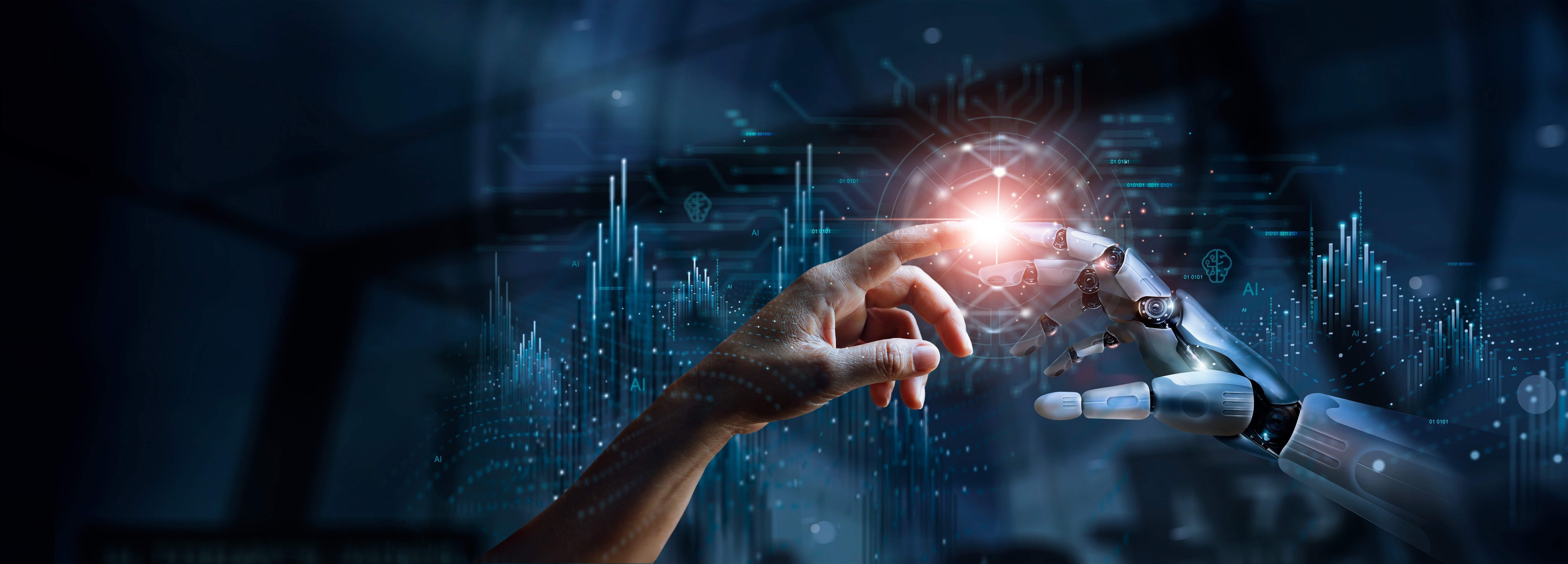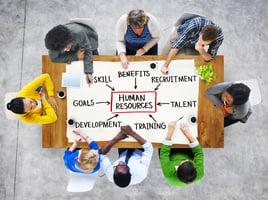While Quiet Quitting and Quiet Firing have recently become hot topics, many employers are failing...
AI Unleashed: Revolutionizing Talent Attraction in 2024
 AI has been a topic of interest for HR pros and recruiters for some time now, revolutionizing the way talent acquisition is approached. With its ability to analyze vast amounts of data and automate repetitive tasks, artificial intelligence has become an indispensable tool in the recruitment process. From screening resumes to conducting preliminary interviews, AI-powered solutions have significantly enhanced efficiency and accuracy, allowing HR pros to focus on more strategic aspects of their roles.
AI has been a topic of interest for HR pros and recruiters for some time now, revolutionizing the way talent acquisition is approached. With its ability to analyze vast amounts of data and automate repetitive tasks, artificial intelligence has become an indispensable tool in the recruitment process. From screening resumes to conducting preliminary interviews, AI-powered solutions have significantly enhanced efficiency and accuracy, allowing HR pros to focus on more strategic aspects of their roles.
AI algorithms can identify patterns and trends in candidate profiles, helping recruiters make data-driven decisions and find the best-fit candidates for their organizations. As AI continues to evolve, its potential in HR and recruitment will only grow, reshaping the way talent is sourced, assessed, and nurtured in the workforce of the future.
As businesses continue to embrace the growth and expansion of AI, they are integrating it into more of their daily operations. According to Zippia, an impressive 65% of recruiters and a staggering 95% of Fortune 500 companies are already utilizing AI in their hiring process. The power of AI lies in its ability to streamline the candidate experience, enhance search and hiring procedures, and alleviate the workload of HR professionals. One common complaint throughout the application process is the time it takes, and integrating AI can significantly speed up the hiring process, resulting in improved candidate experience and an increased likelihood of them recommending your company in the future.
Harnessing the Power of AI
There are countless ways AI is being used in the hiring process, including:
- Writing and posting job descriptions that engage and attract ideal candidates
- AI tools utilize Natural Language Processing (NLP) to analyze successful descriptions, generating inclusive and engaging language. Furthermore, AI-driven systems optimize job postings for search engines and employ personalization algorithms to tailor content for specific candidate demographics.
- Sourcing and screening candidates
- Algorithms sift through vast datasets from diverse sources, utilizing predictive analytics to assess the likelihood of candidate success based on historical hiring data. Machine Learning (ML) models are employed to match candidate profiles with job requirements by analyzing skills, experience, and cultural fit. Automated resume screening tools leverage AI to quickly and accurately shortlist candidates, providing significant time savings for recruiters.
- Algorithms sift through vast datasets from diverse sources, utilizing predictive analytics to assess the likelihood of candidate success based on historical hiring data. Machine Learning (ML) models are employed to match candidate profiles with job requirements by analyzing skills, experience, and cultural fit. Automated resume screening tools leverage AI to quickly and accurately shortlist candidates, providing significant time savings for recruiters.
- Communicating with candidates
- With chatbots offering instant, intelligent responses to queries through various channels like text messages and emails. Natural Language Understanding (NLU) enables chatbots to comprehend and respond intelligently to complex questions, while virtual assistants assist in scheduling interviews and maintaining seamless communication throughout the hiring process.
- Analyze the success of campaigns and develop hiring plans based on history
- When it comes to analyzing the success of campaigns and developing hiring plans, AI analytics tools take center stage. They evaluate recruitment campaigns by analyzing key performance indicators (KPIs) and utilize predictive modeling to forecast the effectiveness of future strategies based on historical data. AI-powered dashboards provide real-time insights, empowering recruiters and hiring managers to make informed decisions promptly.
- When it comes to analyzing the success of campaigns and developing hiring plans, AI analytics tools take center stage. They evaluate recruitment campaigns by analyzing key performance indicators (KPIs) and utilize predictive modeling to forecast the effectiveness of future strategies based on historical data. AI-powered dashboards provide real-time insights, empowering recruiters and hiring managers to make informed decisions promptly.
While the idea of integrating AI into your hiring process may seem overwhelming at first, it is crucial to understand that you don't have to implement it across all aspects of recruitment right away. Instead, start by identifying one or two areas where AI can make a significant impact on your hiring process. This approach allows you to gradually integrate AI into your workflow and experience its benefits firsthand.



